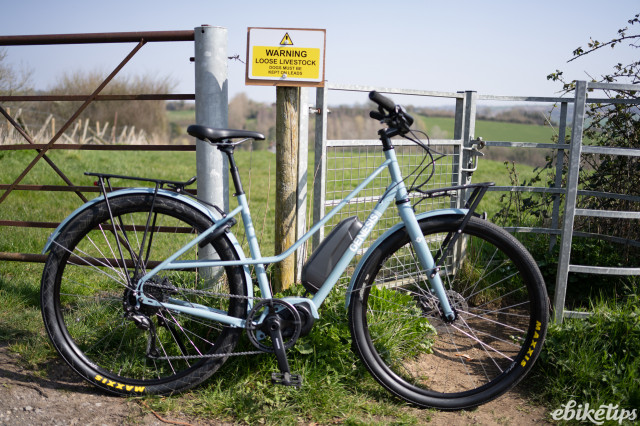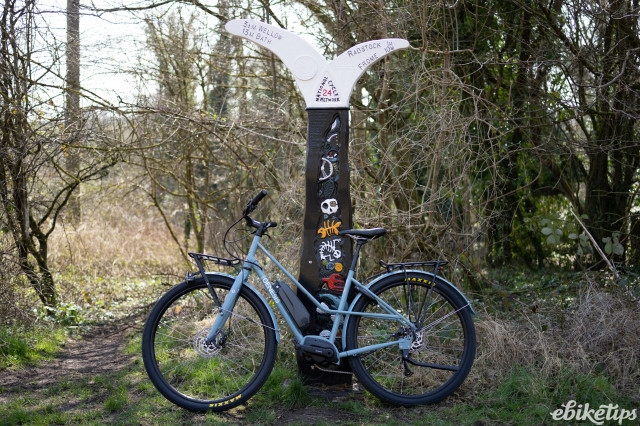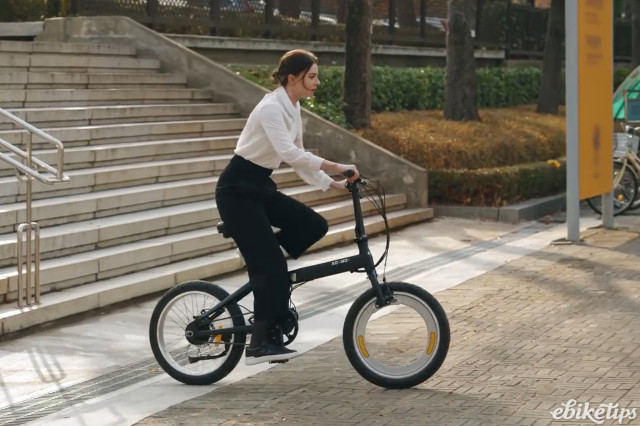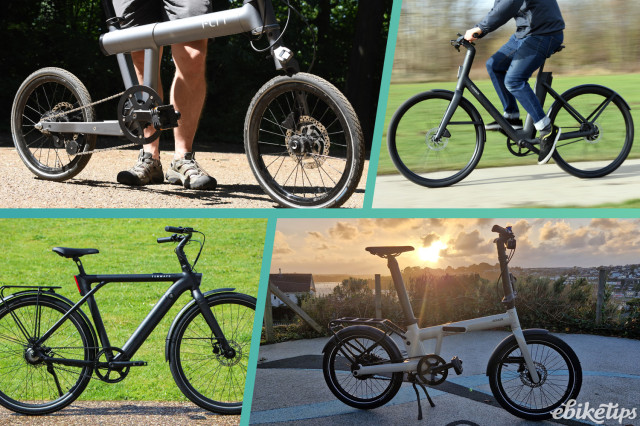Review: Genesis Columbia Road
Overview
- Smooth ride
- Power when you want it
- Heavy
- Relatively expensive
You get a lot of e-bike for £3,000, and the Genesis Columbia Road is a lot of bike. It’s quite bulky already, before you populate the front and rear Atranvelo luggage racks, and the general shape is, well, what’s the nicest thing we can say?
Retro. It’s retro. The frame has a decidedly ‘80s look to it, not completely wild like a Chopper, but more like a Grifter, especially in the way the handlebar kicks up at the ends, pushing riders into an upright position cyclists with lower back problems will surely appreciate. There's even a hint of the old Raleigh Twenty Shopper about it, from a certain angle. It’s available in three sizes, but only one pale blue colour.
That handlebar is certainly distinctive, though you don’t get the full effect until you’re astride the saddle. The bar is the precise shape of the top lip of a damsel in distress from a noir detective story, the sort you know is trouble the moment she walks into your office. If such a dangerous dame were ever to wear black lipstick, of course. The brake levers on our review model were almost underneath the grips rather than sticking out the front in the modern style.
The ‘Mjolnir’ frame is chromoly, which is a fancy word for steel with extra stuff added. Chrome and molybdenum add hardness and cut down on corrosion, but don’t do anything for its density. It’s also double-butted, which isn’t nearly as funny as it sounds. To cut down on weight the top tube is a bifurcated design, but there's still a heft to the bike, especially if you make use of the luggage racks at both front and rear. The frame uses a step-through design that, despite being marked as ‘gender: womens’ on the Genesis website, posed no problem to a male test subject.
Also decidedly chunky are the tyres. They’re made by Maxxis, but keep going round the side wall and you get to the name Grifter, and things start to fall into place. Some might moan about rolling resistance from such thick rubbery contact with the ground, but what it gets you is a smooth, even ride with the ability to lean over quite preposterously in the corners.
Contributing to that smooth ride is the Shimano mid-mounted motor. It’s the STEPS E6100 we were very fond of back in 2019 and it does a great job powering the Genesis Columbia with a range of around 65km (we were completely unable to persuade the display to show anything other than metric) from a full charge of the 418Wh battery with the assistance turned up. The headline grabbing figure of 150km range presumably applies to routes that require only a whisper of power.
The display is basic, showing speed, assistance level, remaining battery charge, and is switchable between remaining range, an odometer, and a resettable trip meter. It would be nice if it could also tell you the time to prevent trying to look at a watch or phone mid-ride, but it does a good job as it is. There's also a switch on the side of the screen to activate the bike’s built-in lights. The front light didn’t work on our test model, so we’re unable to give an opinion on its brightness. The rear light glows a lovely red though. There's also a kickstand, and a Trelock ring lock supplied.
As for the brakes, well, the best we can say is that they will stop you eventually, but though we never felt out of control even going down particularly steep hills, we’ve certainly felt a sharper, more confident reduction in speed upon pulling the levers. This is a shame, as the Shimano hydraulic discs are a popular choice. Maybe an adjustment to the hydraulic fluid or a bit less weight on the bike would tighten them up. It wouldn’t take much.
On the way uphill, the E6100 really proves its worth. You get a slightly unusual combination of three levels of assistance from the motor and a nine-speed rear derailleur, meaning it’s not hard to find a happy medium between leg and battery power. On the flats, 25km/h comes up easily, long strokes of the pedals propelling you easily along. Hills mean an adjustment and probably a reduction in speed, but the great ability of the e-bike to flatten the slopes remains.
While climbing those hills you tend to lean back, or at least as far back as the high handlebar position will allow you, which naturally introduces you to new and exciting parts of the saddle. Happily, Genesis has chosen to put a fairly wide and padded seat on this e-bike, a step away from the slender and firm shape provided with some of the firm’s road bikes. It’s a good choice for a frame more likely to be carrying shopping than trophies, but having the Genesis logo branded in exactly the same place as on bikes of greater effort reminds you of its heritage.
It may be a funny shape, but Genesis has done a good job with the e-bike version of the Columbia Road. Those enormous tyres munch up the miles and there's enough power in the E6100 system to startle the local vicar as you overtake him on your way back from the shops. Despite being somewhat heavy, and with handlebars that take at least 20 minutes to get used to, we can see this being a commuter stalwart, a weekend ride with the kids, and with its double cargo capacity could maybe even replace the car on a trip to the shops.
Rear motor city e-bikes such as the Dallingridge Harlow and VanMoof S3 will of course beat it on price, but it fares better against mid-motor options like the £3,150 BMC AlpenChallenge AL Sport One or the £2,950 Triumph Trekker GT, both of which are built around the same Shimano STEPS E6100 motor system. That's also true of Decathlon's Riverside 540e, which comes in at just £1,999 but lacks the Genesis's luggage racks, and the Volt Regent, which has one rack on the back and is available for £2,399.















